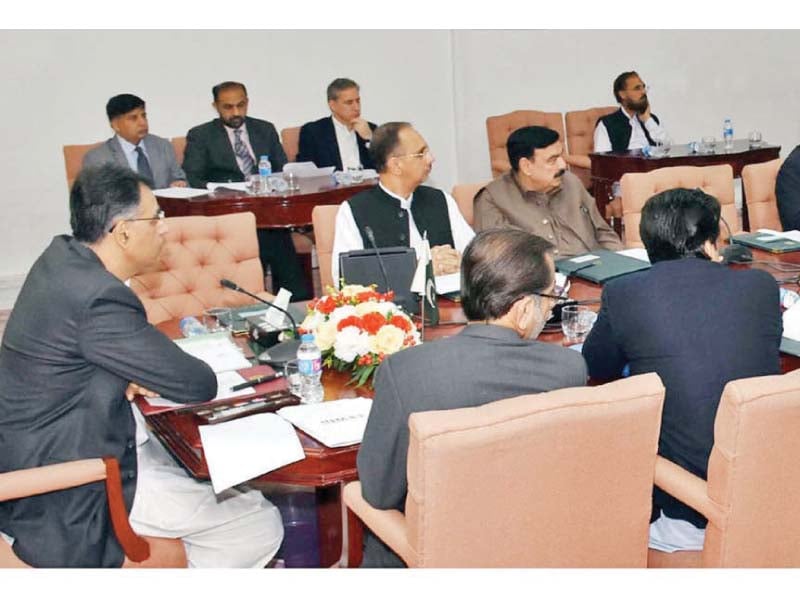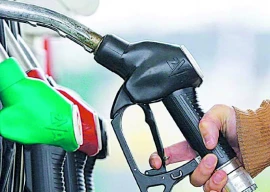
In a meeting of the Economic Coordination Committee (ECC) of the cabinet on Monday, the Power Division again pushed its proposal for the recovery of Rs525 billion or over 40% of total turnover of the power sector from consumers and the finance ministry, instead of addressing root causes of the losses. The power sector’s annual turnover is nearly Rs1.3 trillion.
Headed by Finance Minister Asad Umar, the ECC was dissatisfied with the Power Division’s proposal to further penalise the consumers without getting firm commitments to bringing down the losses equivalent to about 40% of the total turnover.
For each day the decision on power tariff and losses is delayed, it costs taxpayers Rs1.2 billion. But the government may eventually have to notify the increase in prices in a bid to qualify for an International Monetary Fund (IMF) bailout.
The Power Division’s plan was to take Rs220 billion out of the pockets of consumers by increasing the tariffs and receive Rs304 billion in subsidy on account of tariff differential, industrial support package, for Azad Jammu and Kashmir (AJK) and agriculture tube wells in Balochistan.
The tariff differential subsidy proposed by the Power Division is Rs179 billion against the budgeted Rs105 billion. “I have refused to increase electricity prices until the Power Division gives a plan for loss reduction and improved governance,” said Umar after the ECC meeting.
He said the ECC had given some targets to the Power Division on September 25, which it did not meet, adding that a special ECC meeting would be held on Wednesday to discuss the power tariff.
The ECC also deferred decision on another summary of the Power Division that sought up to Rs2.12 billion in monthly subsidy from the finance ministry for agriculture tube wells in Balochistan.
The finance minister cast doubt over the tariff rationalisation plan of the Power Division and directed it to sit with the finance ministry and reconcile the figures.
Last week, Information Minister Fawad Chaudhry said against the earlier average power generation cost of Rs12.90 per unit, the National Electric Power Regulatory Authority (Nepra) recommended a new price of Rs15.53 per unit. That was Rs3.82 or 32.6% higher than the existing prices.
The maximum increase of 62% has been proposed for the domestic consumers using time-of-use meters. The ECC was told that electricity prices for the lower-category consumers would go up by a minimum of Rs1.22 per unit even after giving the subsidy.
Rates for the industrial consumers, except for five export-oriented sectors, would go up by Rs3.68 per unit, according to the officials who attended the meeting. The domestic consumers using up to 50 units a month may be exempted from the tariff increase. The Power Division on Monday proposed various options.
These included passing on the full impact of the proposed increase of Rs3.82 per unit, putting off the tariff increase on account of net hydel profit that would reduce the overall hike to Rs2.96 per unit and giving Rs179 billion in subsidy and raising tariffs by Rs2.20 per unit.
Even after increasing the electricity prices, the finance ministry will have to take a hit of Rs304 billion on its books against total budgeted subsidies of Rs150 billion, according to the officials.
Loss-making entities
The department of the Auditor General of Pakistan (AGP) gave a presentation to the ECC on the financial and operational audit of four loss-making power distribution companies.
These were Peshawar Electricity Supply Company (Pesco), Hyderabad Electricity Supply Company (Hesco), Sukkur Electric Power Company (Sepco) and Quetta Electricity Supply Company (Qesco).
AGP officials said the four companies had caused cumulative losses of Rs143 billion in the last two fiscal years. Pesco caused the highest loss of Rs51.5 billion, Hesco Rs49.7 billion, Qesco Rs22.1 billion and Sepco Rs19.7 billion.
Trade debts of the four companies surged to Rs179.7 billion in the past two years. The highest debt was of Qesco standing at Rs59.8 billion, followed by Sepco at Rs57.4 billion. Pesco and Sepco have in the past two years written off Rs39.4 billion worth of bad debt.
Pesco’s recoveries against current bills were 74.83%, Hesco recovered 52.31%, Sepco 39.62% and Qesco mere 15.42%.
The four companies owed Rs772.2 billion to the Central Power Purchasing Agency (Guarantee) (CPPA-G) against their receivables of Rs507.8 billion.
The ECC also deferred decision on the continuation of subsidy for agriculture tube wells in Balochistan. The committee chairman put off the matter until a meeting took place between Prime Minister Imran Khan and Balochistan chief minister.
Owing to various reasons including non-payment of bills by the consumers, the outstanding tube-well subsidies surged to Rs218 billion as of February 2018, the Power Division said.
Besides the arrears, the federal government will have to pay a monthly subsidy of Rs2.12 billion for tube wells, which the finance ministry is not ready to fully bear.
Published in The Express Tribune, October 23rd, 2018.
Like Business on Facebook, follow @TribuneBiz on Twitter to stay informed and join in the conversation.

1732569774-0/Baymax-(2)1732569774-0-165x106.webp)















COMMENTS
Comments are moderated and generally will be posted if they are on-topic and not abusive.
For more information, please see our Comments FAQ